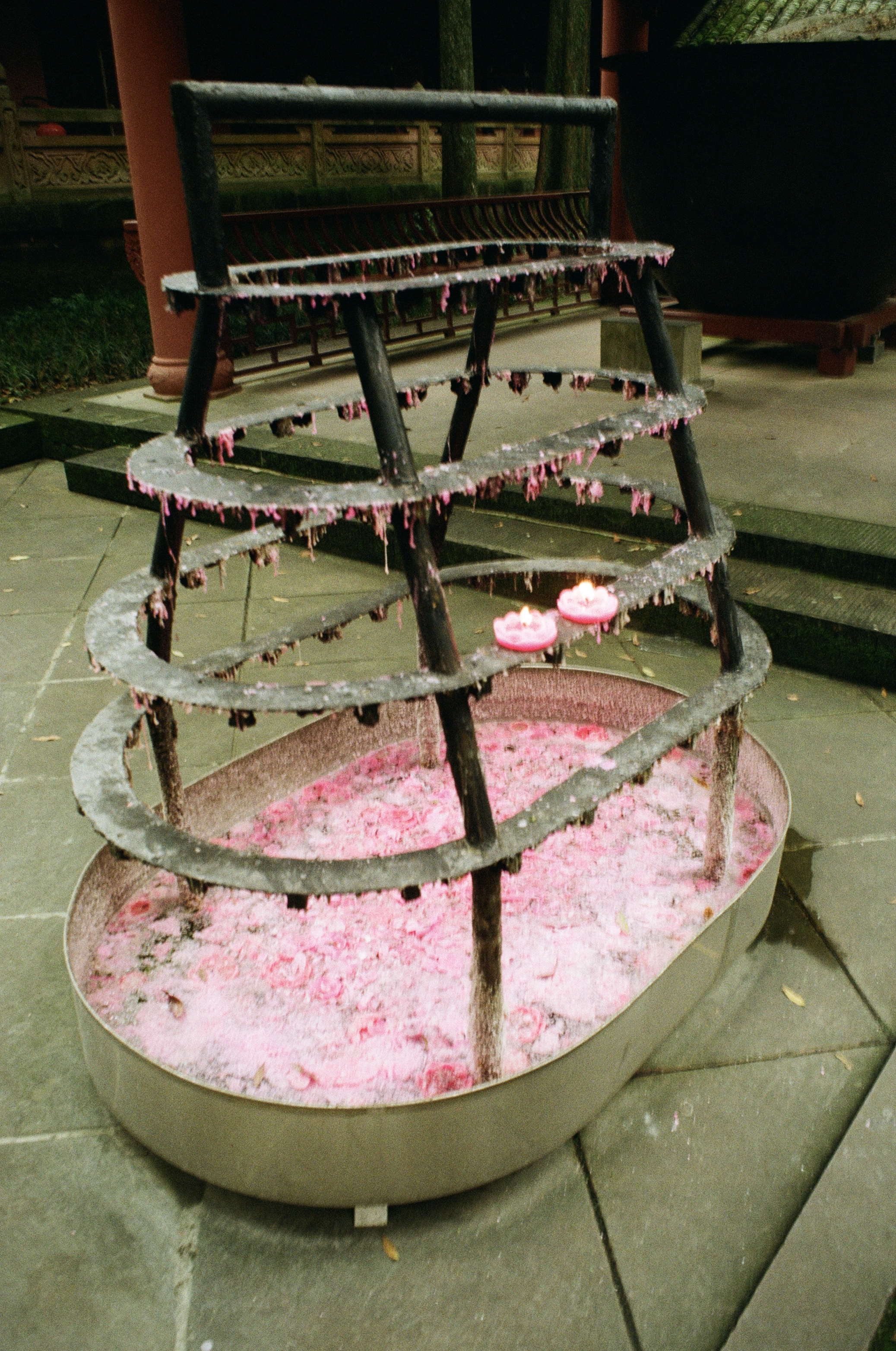IN THE RAINY SPRING: QING MING
The traditional festival Qing Ming.
How do we feel in spring when the weather alters ever hour?
Did you bring your umbrella today?
# # #
A TEXT BY:
Ming Yuan
Artist and writer based in Chengdu, Frankfurt and Berlin.
DATE: 01.04.2024
PUBLISHED IN: TEA BY YUAN Digital Journal
《清明》
唐 杜牧
清明时节雨纷纷,路上行人欲断魂。
借问酒家何处有?牧童遥指杏花村。
This poem vividly depicts the scene of Qing Ming, with rain falling incessantly and travellers feeling melancholic on the road. The speaker seeks solace in a wine tavern, asking for its whereabouts. A shepherd boy points in the direction of Apricot Blossom Village, offering a ray of hope amid the somber atmosphere. The poem captures the bittersweet emotions of Qing Ming, where the beauty of nature contrasts with the sorrow of parting and longing for loved ones.
清明节Qingming Festival, one of the traditional Chinese festivals and one of the twenty-four solar terms节气, typically falls around April 5th each year, marking the official beginning of spring in the Lunar calendar.
The origins of the Qingming Festival can be traced back to the Spring and Autumn Period, around 770-476 BC. According to historical records, Qingming was originally a festival for ancestor worship and tomb-sweeping. Traditional customs on this day include tomb-sweeping, outings, and planting willows. In the imperial era, swing sets were installed in palaces for the concubines to play on.
Over time, Qingming Festival has evolved into a comprehensive holiday that combines ancestor worship, commemorating ancestors, and appreciating nature. In addition to memorial events, people also take advantage of this holiday to go out for enjoying the spring scenery, and experience the vitality of nature. Some places also hold folk activities and cultural performances, such as flying kites, singing folk songs, and performing dragon and lion dances, adding to the festive atmosphere.
Qingming Festival is associated with many myths and legends, among which some of the most famous include the story of 屈原投江Qu Yuan's suicide by drowning. 屈原Qu Yuan was a minister and poet of the Chu State during the Warring States Period of ancient China, and he is regarded as one of the founding figures of Chinese classical literature. According to legend, Qu Yuan lived in the 3rd century BC. He was a nobleman of the 楚国Chu State and was highly respected by the Chu rulers, having held important political positions.
However, as political struggles intensified and external threats loomed, the Chu State gradually fell into turmoil. Qu Yuan, as a loyal minister, repeatedly advised the ruler, but his advice was ignored. Eventually, he was falsely accused and banished from the court, exiled to the banks of the Xiang River, nowadays near the Hunan Province.
Legend has it that on a Qingming Festival around 278 BC, when Qu Yuan was exiled to the 汨罗江Miluo River, he felt despair for the country's decline and his personal hopelessness, and in anger, chose to drown himself. To prevent fish and shrimp from eating his body, local people rowed boats out into the river, scattering rice, tossing reeds, and beating drums to drive away the fish and shrimp, and they went into the water to salvage Qu Yuan's body as a sign of mourning.
The story of Qu Yuan's suicide has become a classic tale in Chinese traditional culture, widely passed down and praised by later generations. His suicide is seen as a symbol of loyalty to the country and the nation, as well as a symbol of the perseverance of personal ideals and beliefs, deeply moving countless people and becoming a legend in the history of Chinese literature.
 Photography by Ming Yuan
Photography by Ming Yuan清明节,是中国传统的重要节日之一,也是二十四节气之一。它通常在每年阳历的4月5日左右,标志着春季的正式开始。
清明节最早可追溯至春秋时期,约公元前770年至公元前476年。据史书记载,清明最初是一个用于祭祀祖先和扫墓的节日。旧俗当天有扫墓、踏青、插柳等活动。过去,宫中以当天为秋千节,坤宁宫及各后宫都安置秋千,嫔妃做秋千之戏。
随着时间的推移,清明节逐渐演变成为一个融合了祭祖、缅怀先人和欣赏自然的综合性节日。除了祭祀祖先外,人们还会利用这个节日出游踏青,欣赏春天的美景,感受大自然的生机和活力。一些地方还会举办民俗活动和文化表演,如放风筝、唱山歌、舞龙舞狮等,增添了节日的欢乐氛围。
清明节有许多与之相关的典故和传说,其中一些最为著名的包括屈原投江。屈原是中国战国时期楚国的一位大臣和诗人,他被誉为中国古代文学的奠基人之一。据传说,屈原生活在公元前3世纪,他是楚国贵族出身,深受楚国君主赏识,曾担任过重要的政治职务。
然而,随着政治斗争的加剧和外敌入侵的威胁,楚国逐渐陷入动荡之中。屈原作为一个忠臣,多次忠告君主,劝谏不听。最终,他因被诬陷而被贬斥出朝,被流放到了湘江流域。
据传说,公元前278年的一个清明节,屈原被放逐至汨罗江时,他深感国家的颓势和个人的绝望,愤怒之下选择了投江自尽。为了防止鱼虾啃食他的尸体,当地百姓纷纷划船出湖,撒下米粮、投入芦苇和打鼓以驱赶鱼虾,并纷纷下水打捞屈原的尸体,以示哀悼。
屈原投江的故事成为了中国传统文化中的一个经典典故,被后人广泛传颂和赞美。他的自杀被视为对国家和民族的忠诚,同时也象征着对个人理想和信念的坚守,深深感动了无数后人,成为了中国文学史上的一个传奇。